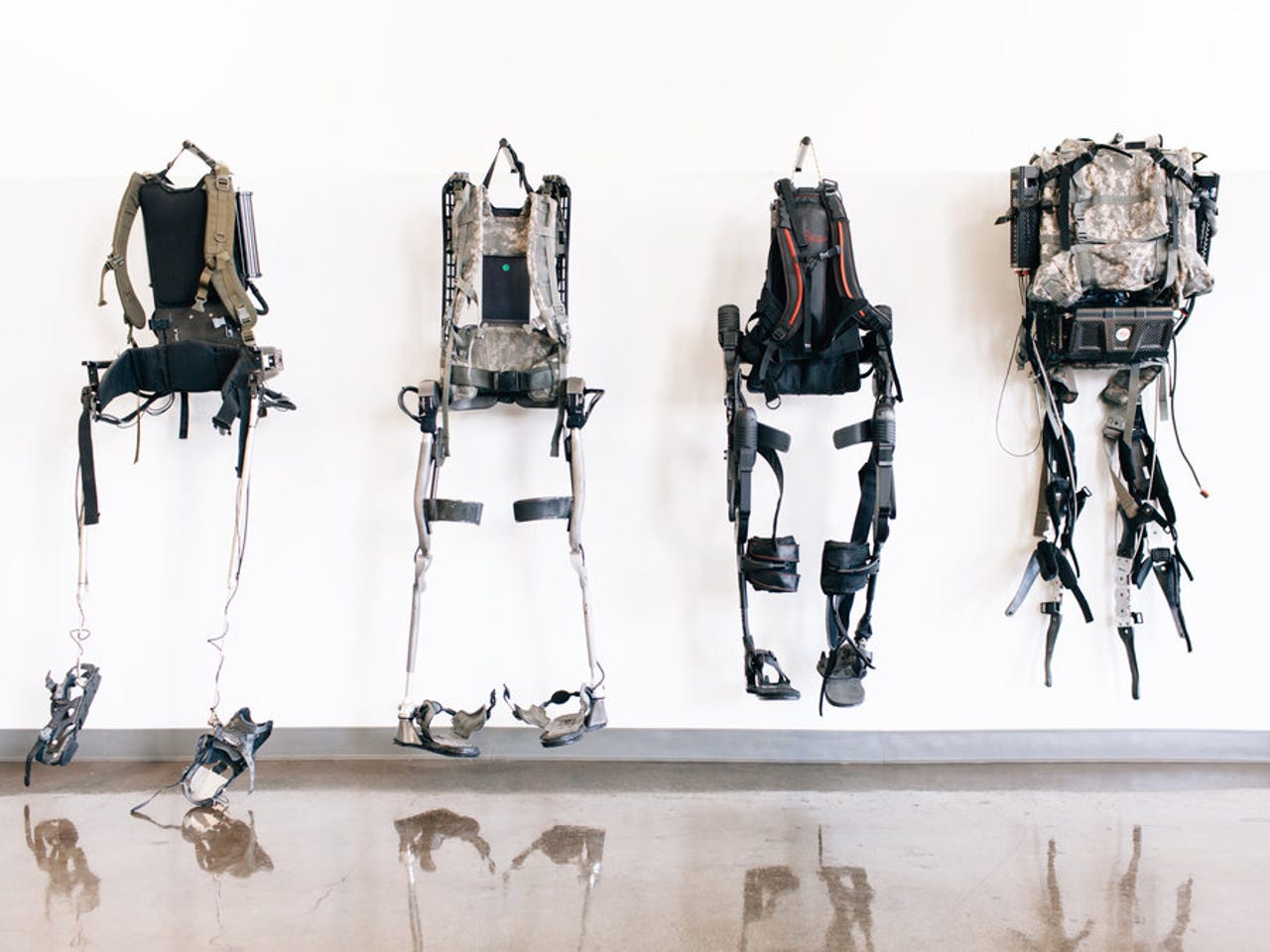British telecom company teams up with maker of bionic suit


Older iterations of Ekso Bionics' signature robotic suit.
Vodafone just announced a new partnership with wearable robotics company Ekso Bionics.
Ekso makes a robotic exoskeleton that can enhance natural endurance or strength in able-bodied people and enables people living with paralysis to stand and walk walk. The San Francisco Bay Area-based company, which has licensed its suit for military use, is now primarily marketing its signature product as a medical device to aid recovery from stroke or reduce the secondary effects of paralysis by getting people out of wheelchairs for a portion of each day.
Robotics
The Internet of Things is finding its way into all kinds of hardware, and roboticists have been especially keen to employ IoT sensors--which is where the Vodafone partnership comes in. Ekso hopes Vodafone's network and global IoT SIM will ensure reliable communications for diagnostics and improved access to patient data, which will help the robotics company improve its user experience.
"The Internet of Things is enabling all types of medical devices to be connected anywhere in the world," says Vodafone Group's Head of IoT for the Americas Andrew Morawski, "which is directly affecting the care that patients are receiving. The focus that Ekso Bionics has on helping stroke and spinal cord injury patients to increase mobility is making a significant impact on the quality of life for its users."
IoT in healthcare is expected to grow from $32.47 billion in 2015 to $163.24 billion by 2020. Forty-seven percent of hospitals are looking to further expand their use of connected health technologies.
Hyundai recently unveiled its own robotic suit. Interestingly, Hyundai, too, has been touting the IoT connectivity of its exoskeleton. To be effective, the next generation of robotic suits will have to react to a user's intentions and to the environment in real time. That takes a lot of sensors and a lot of real-time processing power. Hyundai engineers turned to National Instruments for help. National Instruments makes embedded sensors, as well as a platform that combines real-time CPU and field-programmable gate array for ultra fast processing that wasn't available just a few months ago.
Ekso's partnership with Vodafone is a sign that the company may be scaling up its operations. The partnership has allowed Ekso to simplify its manufacturing process by using the same Vodafone SIM for all suits globally as well as having a single worldwide partner delivering a managed service.
Ekso Bionics' Ekso GT suit is currently available in the United States, Mexico, Canada, South Africa, and in most European countries, and it is the first suit to get FDA clearance. The Ekso GT is offered in more than 150 leading rehabilitation institutions around the world and has helped enable its users to take more than 50 million steps not otherwise possible.